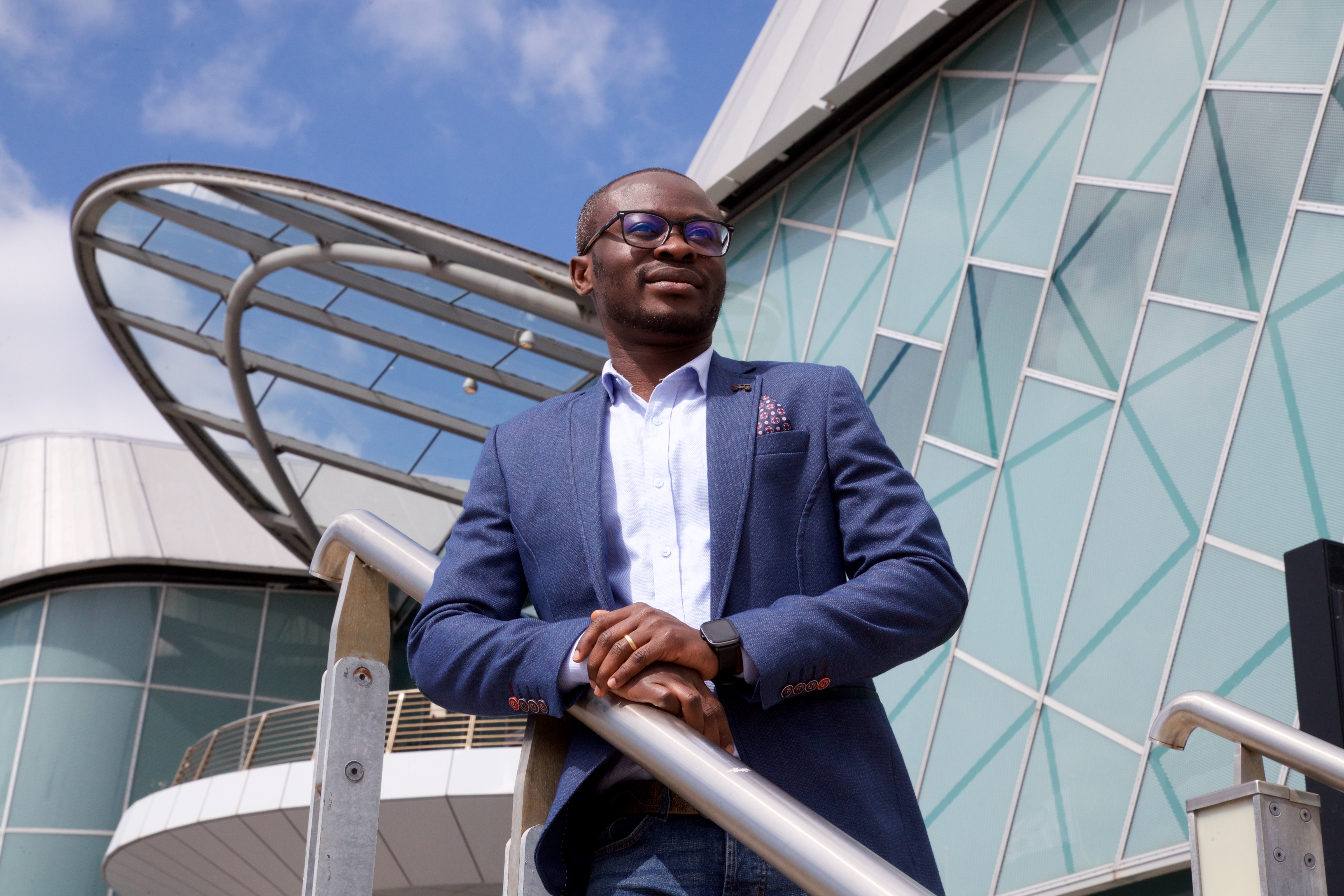.jpg?width=4800&height=3200&ext=.jpg&width=900&resizemode=force)
This article first appeared in the October editon of Synergy
The early career path of Theo Akudjedu could never be described as a simple case of going from A to B, even though it has literally been a journey from Accra to Bournemouth.
Having missed out on medical school in his home country of Ghana, Theo took a new direction into diagnostic radiography and has not looked back. Qualifying in 2012, he worked in a leading hospital in the capital before gaining experience in the more rural parts of the country.
'So many opportunities for developing your interests'
Moving to London, he completed a masters degree in neuroimaging at King’s College in 2015, before heading to the University of Galway in the Republic of Ireland to continue his interest in imaging the brain, and gaining a PhD in medicine.
In 2019 he joined Bournemouth University as a senior lecturer, became principal academic in medical imaging, and was recently appointed associate professor of clinical imaging.
“I initially wanted to study for my bachelor's in medicine and didn’t get in”, says Theo. “But ironically diagnostic radiography then offered me the opportunity at the end of the day to be awarded a PhD in medicine.
“It’s really interesting, because radiography is one of the allied professions to medicine that is able to examine every anatomy or pathology of the whole body. If you think of it from that perspective, it allows you so many opportunities for developing your interests.
“Radiography is just an amazing career that gives you so much satisfaction working at the interface of patients and technology, and because technology keeps evolving you don’t end up doing the same thing over and over. And of course it’s becoming more interesting with the emergence of AI and its integration with what we do as radiographers, working with the latest cutting-edge technologies.”
'AI is going to enhance our work'
Theo’s PhD focused on using automated neuroimaging acquisition and image analysis techniques to study the progression of the brain following the first episode of psychosis. He is clearly not a radiographer who is worried about losing his job to AI, though his most recently published research includes a global radiography workforce study investigating the knowledge, perceptions, and expectations of AI in radiography practice.
“We found that some people are worried about their salaries and their job security and really worried that AI is going to take over their jobs, but I would say that it's going to enhance our work by freeing our time to really focus on the more patient-centred activities.”
Theo was the first permanent academic radiographer at Bournemouth University and worked with colleagues to establish the university’s Institute of Medical Imaging and Visualisation, housing imaging infrastructure such as MRI scanners, ultrasound, and other integrated imaging modalities.
Read more about Theo's work in the October edition of Synergy, click here.
(Image: Theo Akudjedu via Synergy)
